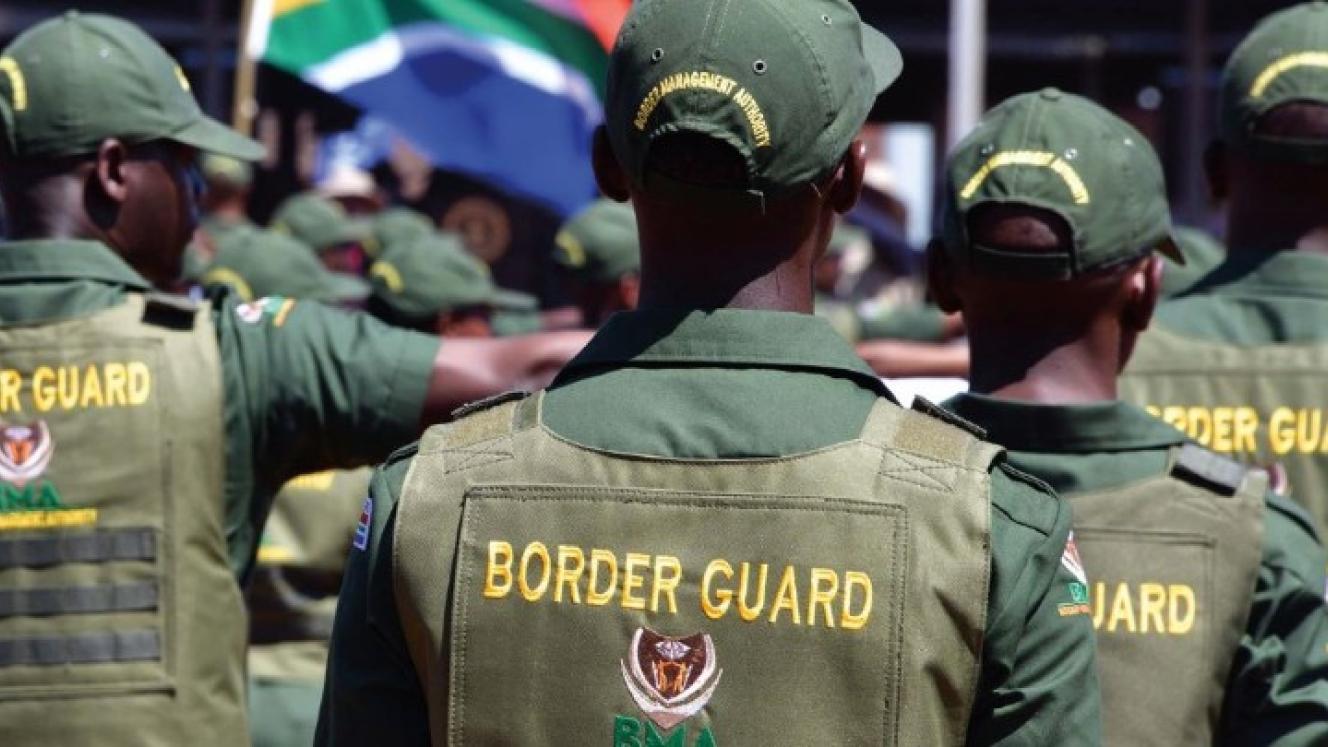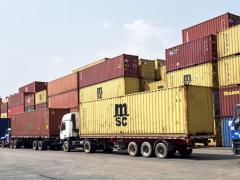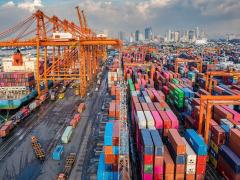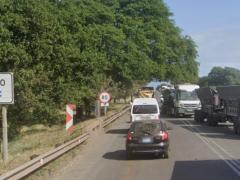Sudan’s biggest port, which also serves as an important supply chain lifeline for aid flows into the country, has been targeted by drone attacks since Sunday.
Al Jazeera reports that military sources and residents have blamed the attacks, which hit fuel storage facilities on 5 May, on the Rapid Support Forces (RSF), the paramilitary group opposing the Sudan Armed Forces (SAF) government in Khartoum.
“Explosions have been heard at Port Sudan, a critical lifeline and entry point for aid, as attacks on the city continued for a fourth day in the latest confrontation between SAF and RSF in the country’s brutal two-year civil war,” the news service said.
An army source told Agence France-Presse on Wednesday that the explosion was due to a drone attack that was met with “anti-aircraft missiles”.
Port Sudan, on the Red Sea coast, has been harbouring displaced people since the war started and is an interim seat for Sudan’s military-allied government, at war with the RSF since 2023.
Almost all aid for the war-torn country flows through the port city.
Information Minister Khalid Aleiser visited the port on Tuesday and blamed the United Arab Emirates for arming the RSF, while Defence Minister Yassin Ibrahim said the government was cutting diplomatic ties with the Gulf country, withdrawing its ambassador and closing its embassy.
Last November, Sudan pulled out of a $6 billion port development deal with AD Ports Group because of the United Arab Emirates’ supposed support for the RSF.
The UAE has repeatedly rejected the allegations and condemned the latest attack on Sudan’s most important hub for international commerce.
United Nations Secretary-General António Guterres’ deputy spokesperson, Farhan Haq, said on Tuesday that its humanitarian agencies were “deeply concerned by the intensifying drone attacks” on civilian infrastructure in Port Sudan.
“Early this morning, drone attacks reportedly struck the airport area, a fuel storage facility and a power transformer. While no UN personnel or facilities were directly affected by the strikes, the Office for the Coordination of Humanitarian Affairs said that the latest violence poses a growing risk to the safety of humanitarian staff and operations, with flights of the UN Humanitarian Air Service both to and from Port Sudan still on hold,” Haq said.
He said that elsewhere in the country, prolonged power outages due to drone attacks targeting power stations and facilities continue to disrupt civilian life.
“This is the case in Northern State, where a one-month power blackout prevented farmers from running electrical water pumps, leading to the destruction of more than 84 square kilometres of crops. And in River Nile State, the targeted destruction of power infrastructure has led to severe water supply shortages,” Haq said.
“Despite hostilities, we continue to provide assistance to the most vulnerable people.”
In the town of Ed Daein in East Darfur, humanitarian organisations were mobilising aid for 35,000 people who fled there from Khartoum and Aj Jazirah States, and in Kassala State, the UN was scaling up water and sanitation efforts to curb the spread of hepatitis E, he said.













